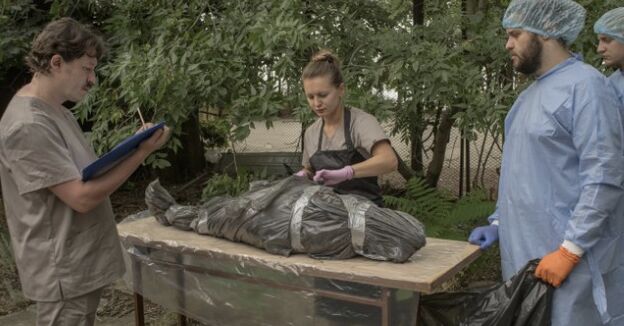War-Ravaged Black Sea Becomes Graveyard for Dolphins: Environmental Crime Unleashed by Russia
The ongoing war between Russia and Ukraine is causing a catastrophic impact on the marine life in the Black Sea, with over 900 dead dolphins washing up on the shores. Ukraine aims to build a strong case against Russia for this environmental crime.
In a devastating turn of events, the shores of the Black Sea in southern Ukraine are becoming a haunting graveyard for dolphins. Russia's ongoing war with Ukraine is taking a severe toll on marine life and the environment, leaving marine creatures like dolphins in a dire condition.
Ukrainian officials believe that this catastrophic situation should be recognized as an environmental crime and are determined to build a strong case against Russia. Dolphins play a crucial role in the marine ecosystem, and their deteriorating health is an alarming sign for the entire ecosystem.
Pawel Goldin, a zoology doctor specializing in marine mammal populations, states, "If dolphins are in a bad condition, then the entire ecosystem will be in a bad condition." With over 900 cases of dead dolphins documented, it is clear that urgent action needs to be taken.
Various factors contribute to the worsening state of dolphins in the Black Sea. Russian warships are employing acoustic sonar signals that disrupt dolphins' sense of direction, while explosions, rocket launches, and low-flying fighter jets only add to their trauma.
Maritime mines pose deadly obstacles, and pollutants from explosives and fuel leaks have contaminated vast areas of the Black Sea. The destruction of the Kakhovka dam, which unleashed polluted water into the sea, worsened the ecological catastrophe.
President Zelensky has recognized the importance of protecting the environment and has included it in the 10-point peace plan aimed at ending the war. Ukraine's Ministry of Environmental Protection has collected data on over 900 cases of dolphin deaths, including those found on the shores of Turkey and Bulgaria.
However, the true extent of the damage is yet to be determined. While some environmentalists speculate that over 50,000 dolphins may have died in the first year of the war alone, scientists involved in forensic examinations proceed with caution.
International collaboration, including sending samples to experts in Italy and Germany, is ongoing to better understand the situation and determine the cause of death for each dolphin. Documenting these tragic incidents is crucial, but understanding the underlying reasons behind the dolphin deaths is a complex task.
Each necropsy provides valuable information and clues that can help unravel the mystery. However, it is only after the war ends that a comprehensive survey of marine life in the Black Sea can be conducted to assess the true extent of the damage.
The shocking reality of what is happening to the dolphins has mobilized Ukraine to prioritize environmental protection. Ukraine hopes to regain control over the Black Sea, as only then can the healing process for the environment begin. As Dr. Goldin aptly puts it, "The best agent of nature conservation now is the Ukrainian Army." The urgency to end this devastating war has never been higher, as the fate of marine life in the Black Sea hangs in the balance.




